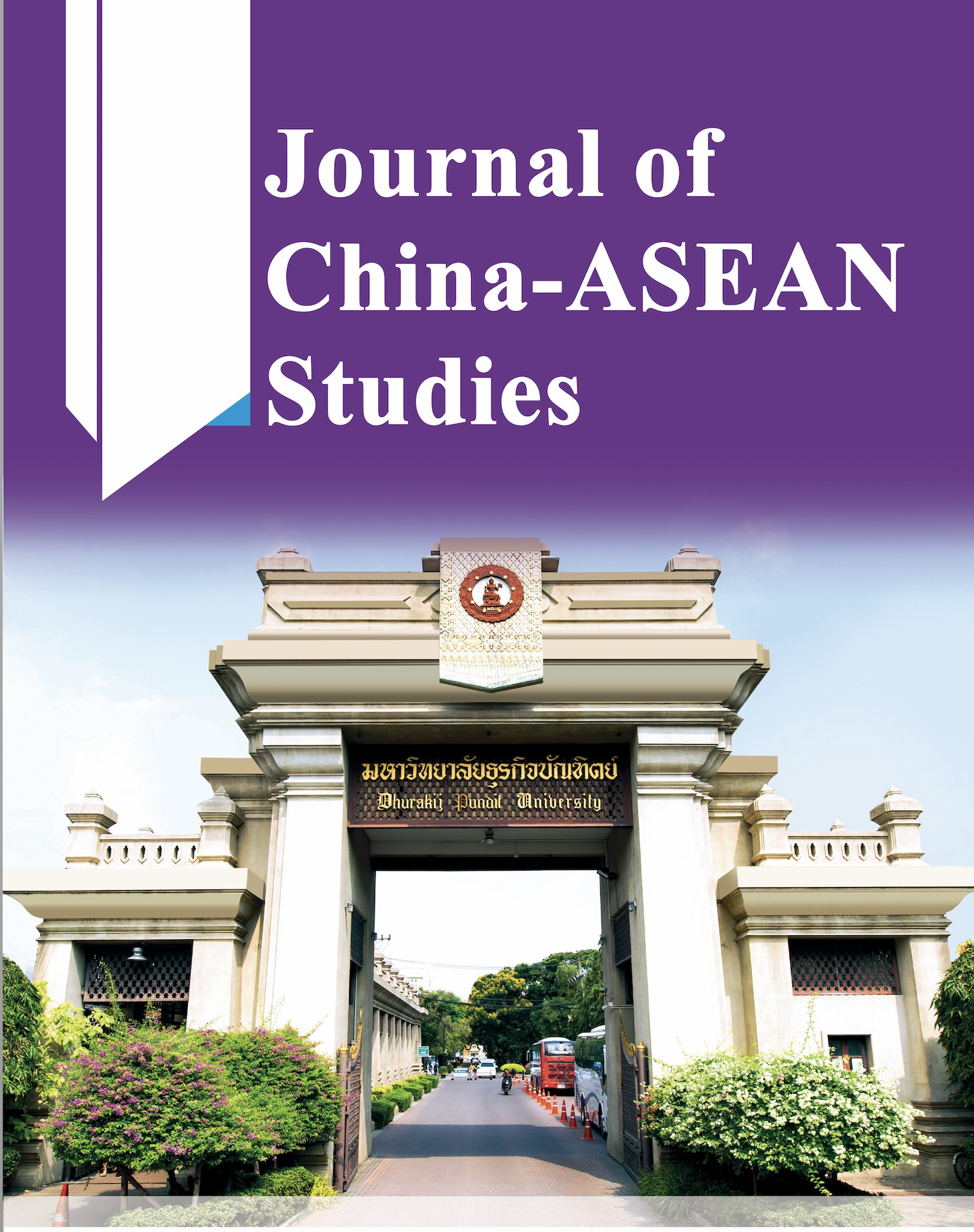Bibliometric Literature Review of Intercultural Competence From 2002 to 2022
Keywords:
Bibliometric Analysis, Intercultural Competence, Bibliometric Literature Review, CiteSpaceAbstract
Intercultural competence research focuses on the study of intercultural communication competence as a result of the increasingly interconnected world we live in. In order to have a better understanding of this knowledge domain, a total number of 583 English peer-reviewed articles were obtained from the Core Collection of Web of Science indexed by Social Science Citation Index as well as Science Citation Index Expanded from 2002 to 2022. This bibliometric analysis using CiteSpace is conducted and visualization approaches are used to show the publication trends, major contributing countries, journals, authors, references and hotspots in this domain. Using a graphical to visualize ICC literature in this study might be beneficial for researchers and scholars to track the development of ICC research.
References
Avgousti, M. I. (2018). Intercultural communicative competence and online exchanges: A systematic review. Computer Assisted Language Learning, 31(8), 819–853. https://doi.org/10.1080/09588221.2018.1455713
Byram, M. (2006). Developing a concept of intercultural citizenship. Languages for Intercultural Communication and Education, 13, 109. https://doi.org/10.21832/9781853599200
Byram, M. (2010). Linguistic and cultural education for" Bildung" and Citizenship. The Modern Language Journal, 94(2), 317–321. http://www.jstor.org/stable/40856134
Chen, C. (2006). CiteSpace II: Detecting and visualizing emerging trends and transient patterns in scientific literature. Journal of the American Society for Information Science and Technology, 57(3), 359–377. https://doi.org/10.1002/asi.20317
Chen, C. (2014). The citespace manual. College of Computing and Informatics, 1(1), 1–84. http://cluster.ischool.drexel.edu/~cchen/citespace/CiteSpaceManual.pdf
Cobo, M. J., López‐Herrera, A. G., Herrera‐Viedma, E., & Herrera, F. (2011). Science mapping software tools: Review, analysis, and cooperative study among tools. Journal of the American Society for Information Science and Technology, 62(7), 1382–1402. https://doi.org/10.1002/asi.21525
Deardorff, D. K. (2015). Intercultural competence: Mapping the future research agenda. https://doi.org/10.1016/j.ijintrel.2015.03.002
Donthu, N., Kumar, S., Mukherjee, D., Pandey, N., & Lim, W. M. (2021). How to conduct a bibliometric analysis: An overview and guidelines. Journal of Business Research, 133, 285–296. https://doi.org/10.1016/j.jbusres.2021.04.070
Ellegaard, O., & Wallin, J. A. (2015). The bibliometric analysis of scholarly production: How great is the impact? Scientometrics, 105(3), 1809–1831. https://doi.org/10.1007/s11192-015-1645-z
Genkova, P., Schaefer, C. D., Schreiber, H., Rašticová, M., Poor, J., Veresné, K. V., Suhajda, C., Viszetenvelt, A., & Bjekic, J. (2021). Scale Characteristics of Intercultural Competence Measures and the Effects of Intercultural Competence on Prejudice. Frontiers in Psychology, 12. https://doi.org/10.3389/fpsyg.2021.686597
Hammer, M. R., Bennett, M. J., & Wiseman, R. (2003). Measuring intercultural sensitivity: The intercultural development inventory. International Journal of Intercultural Relations, 27(4), 421–443. https://doi.org/10.1016/S0147-1767(03)00032-4
Kulich, S. J., Komisarof, A., Smith, L. R., & Cushner, K. (2021). Re-examining intercultural research and relations in the COVID pandemic. In International Journal of Intercultural Relations (Vol. 80, pp. A1–A6). Elsevier. https://doi.org/10.1016/j.ijintrel.2020.12.003.
Lenkaitis, C. A. (2022). Integrating the United Nations’ Sustainable Development Goals: Developing content for virtual exchanges. Language Learning & Technology, 26(1), 1–20. https://doi.org/10125/73470
Liu, Y., & Shirley, T. (2021). Without Crossing a Border: Exploring the Impact of Shifting Study Abroad Online on Students’ Learning and Intercultural Competence Development during the COVID- 19 Pandemic. Online Learning, 25(1), 182–194. https://doi.org/10.24059/olj.v25i1.2471
Luo, J., & Chan, C. K. Y. (2022). Qualitative methods to assess intercultural competence in higher education research: A systematic review with practical implications. Educational Research Review, 37, 100476. https://doi.org/10.1016/j.edurev.2022.100476
Marijuan, S., & Sanz, C. (2017). Technology-assisted L2 research in immersive contexts abroad. System, 71, 22–34. https://doi.org/10.1016/j.system.2017.09.017
Méndez García, M. del C. (2020). From knowledge building to intercultural development of American mobile students in Spain. Onomázein Revista de Lingüística Filología y Traducción, 48, 17–44. https://doi.org/10.7764/onomazein.48.02
Moral-Muñoz, J. A., Herrera-Viedma, E., Santisteban-Espejo, A., & Cobo, M. J. (2020). Software tools for conducting bibliometric analysis in science: An up-to-date review. El Profesional de La Información, 29(1). https://doi.org/10.3145/epi.2020.ene.03
Ortiz-Marcos, I., Breuker, V., Rodríguez-Rivero, R., Kjellgren, B., Dorel, F., Toffolon, M., Uribe, D., & Eccli, V. (2020). A framework of global competence for engineers: The need for a sustainable world. Sustainability, 12(22), 9568. https://doi.org/10.3390/su12229568
Peng, R.-Z., Zhu, C., & Wu, W.-P. (2020). Visualizing the knowledge domain of intercultural competence research: A bibliometric analysis. International Journal of Intercultural Relations, 74, 58–68. https://doi.org/10.1016/j.ijintrel.2019.10.008
Romijn, B. R., Slot, P. L., & Leseman, P. P. M. (2021). Increasing teachers’ intercultural competences in teacher preparation programs and through professional development: A review. Teaching and Teacher Education, 98, 103236. https://doi.org/10.1016/j.tate.2020.103236
Shadiev, R., & Yu, J. (2022). Review of research on computer-assisted language learning with a focus on intercultural education. Computer Assisted Language Learning, 1–31. https://doi.org/10.1080/09588221.2022.2056616
Wang, C., Wu, S.-Y., Nie, Y.-Z., Cui, G.-Y., & Hou, X.-Y. (2022). Open-mindedness trait affects the development of intercultural communication competence in short-term overseas study programs: A mixed-method exploration. BMC Medical Education, 22(1), 219. https://doi.org/10.1186/s12909-022-03281-2
Wang, J., & Zhang, S. (2022). Cross-Cultural Learning: A Visualized Bibliometric Analysis Based on Bibliometrix from 2002 to 2021. Mobile Information Systems, 2022, 1–11. https://doi.org/10.1155/2022/7478223
Zhang, X., & Zhou, M. (2019). Interventions to promote learners’ intercultural competence: A meta- analysis. International Journal of Intercultural Relations, 71, 31–47. https://doi.org/10.1016/j.ijintrel.2019.04.006






